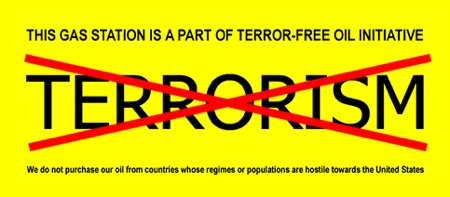You’d think that when Congress wants to debate the Israeli-Palestinian conflict, they’d get experts to testify who were either independent, dispassionate analysts or represented a range of thinking about the issue at hand — particularly as the Baker-Hamilton report just recommended more pro-active American diplomacy to resolve the conflict and the Secretary of State recently committed to pay greater attention to it. And since the new Congress is led by Democrats, a more balanced approach than the Republicans might be seen, right?
Wrong. When the subcommittee on the Middle East and South Asia met on 14 February to discuss “Next Steps in the Middle East Peace Process,” chairman Gary Ackerman decided to invite only people whose entire careers have been devoted to working for Israeli interests, and in some cases Likudnik-fascist interests. Here’s the guest list.
1. Martin Indyk, an Australian-American whose Middle East career began working for AIPAC before he went off to found the “AIPAC lite” think tank WINEP, and now heads the Brooking Institute’s Saban Center for Middle East Policy (named after ultra-Zionist Egyptian-born Israeli millionaire Haim Saban, one of the largest political donors in the US). He was then brought in as one of the Clinton administration’s Middle East hands, and alongside Dennis Ross and others devoted his years in administration to lobbying the Israeli view from inside US government, including as the US ambassador to Israel (surely the reverse?) where his cavalier treatment of classified info got his security clearance revoked. This means he’s the “moderate” in this line up — the good cop — even though he was part of the policy machinery in the 1990s that did not raise an eyebrow as the Israelis massively increased their settlements in the Occupied Territories. In his speech, he favors the “take it slowly” approach and is all excited about building alliances between Israel and Arab states.
2. David Makovsky, an Israeli-American who is Director of the Project on the Middle East Peace Process at WINEP (one of several Middle East centered think tanks with a strong pro-Israel bias that passes off as “moderate” because it is not JINSA or MEF), a former journalist and editor of the right-wing Jerusalem Post (he was also diplomatic correspondent for Haaretz) and a major advocate of Israel’s wall. His brother Michael, a card-carrying neocon, worked with Douglas Feith at the infamous “Office of Special Plans” and his other brother Alan actually works for the House International Relations Committee (i.e. the host of the event.) His speech takes the typical line of Israeli apologists and focuses on Hamas’ recognition of Israel rather than Israel’s decades-long occupation of Palestine and reiterates the misleading Dennis Ross version of Camp David debunked by Robert Malley and others.
3. Last but certainly not least, Daniel Pipes. It’s a fundamental mistake to think that Pipes, who occupies an “extremist” position in the world of pro-Israel advocacy, is really that different from the two above. Pipes of course is a rather shrill advocate of Israel, much less subtle than those above. He is also behind the Campus Watch project that seeks to undermine US academia when it is not pro-Israeli, and a former head of the Middle East Forum, a refuge of second-rate rabidly anti-Arab pundits, wonks, and academics whose purpose seems to be to make places like WINEP and the Saban Center look “fair and balanced.” Here’s an excerpt from his testimony:
Which Side Should Win?
Like all outsiders to the conflict, Americans face a stark choice: endorse the Palestinian goal of eliminating Israel or endorse the Israeli goal of winning its neighbors’ acceptance.
To state the choice makes clear that there is no choice – the first is offensive in intent; the second defensive. No decent person can endorse the Palestinians’ goal of eliminating their neighbor; along with every president since Harry S Truman, and every congressional resolution and vote since then, the 110th Congress must continue to stand with Israel in its drive to win acceptance.
Not only is this an obvious moral choice, but Israel’s win is actually the Palestinians’ as well. Israel’s success in crushing the Palestinians’ will to fight would actually be the best thing that ever happened to them. Compelling Palestinians finally to give up on their foul irredentist dream would liberate them to focus on their own polity, economy, society, and culture. Palestinians need to experience the certitude of defeat to become a normal people – one where parents stop celebrating their children becoming suicide terrorists, where something matters beyond the evil obsession of anti-Zionist rejectionism. There is no shortcut.
U.S. Policy
Americans especially need to understand Israel’s predicament and help it win its war, for the U.S. government has a vital role in this theater. My analysis implies a radically different approach for the Bush administration and for this congress. On the negative side, Palestinians must understand that benefits will flow only after they prove their acceptance of Israel. Until then – no diplomacy, no discussion of final status, no recognition as a state, and certainly no financial aid or weapons.
On the positive side, the administration should work with Israel, the Arab states, and others to induce the Palestinians to accept Israel’s existence by convincing them the gig is up, they have lost. This means impressing on the Israeli government the need not just to defend itself but to take steps to demonstrate to Palestinians the hopelessness of their cause. That requires not episodic shows of force (such as the war against Hizbullah last summer) but a sustained and systematic effort to alter a bellicose mentality.
Also, given that Israel’s enemies — the PLO, Hamas, Hezbollah, Iran — are also America’s enemies and that Israel has a significant role in the U.S.-led “war on terror,” an Israeli victory would greatly help its U.S. ally. In smaller ways, too, tougher Israeli tactics would help. Jerusalem should be encouraged not to engage in prisoner exchanges with terrorist groups, not to allow Hizbullah to re-arm in southern Lebanon or Fatah or Hamas in Gaza, and not to withdraw unilaterally from the West Bank (which would effectively turn over the region to Hamas terrorists and threaten Hashemite rule in Jordan).
Diplomacy aiming to shut down the Arab-Israeli conflict is premature until Palestinians give up their hideous anti-Zionist obsession. When that moment arrives, negotiations can re-open with the issues of the 1990s – borders, resources, armaments, sanctities, residential rights – taken up anew. But that moment is years or decades away. In the meantime, a war needs to be won.
I know some readers might not agree with my depiction of these three “experts” — I personally think “moderates” such as Indyk are much more damaging to the US than clowns like Pipes. But I believe it is reasonable to say that all three are people whose professional lives have been in large part devoted to advancing Israeli interests and who represent only one side of the conflict. That they should be the only experts to testify in what is one of the key issues in US foreign policy is an outrage and telling of how one-sided the debate over Israel and Palestine has become in Washington. It’s meant to be the US Congress, not the freaking Knesset.
Also read:
Subcommittee hosts anti-Palestinian threesome – Michael Brown for Electronic Intifada



